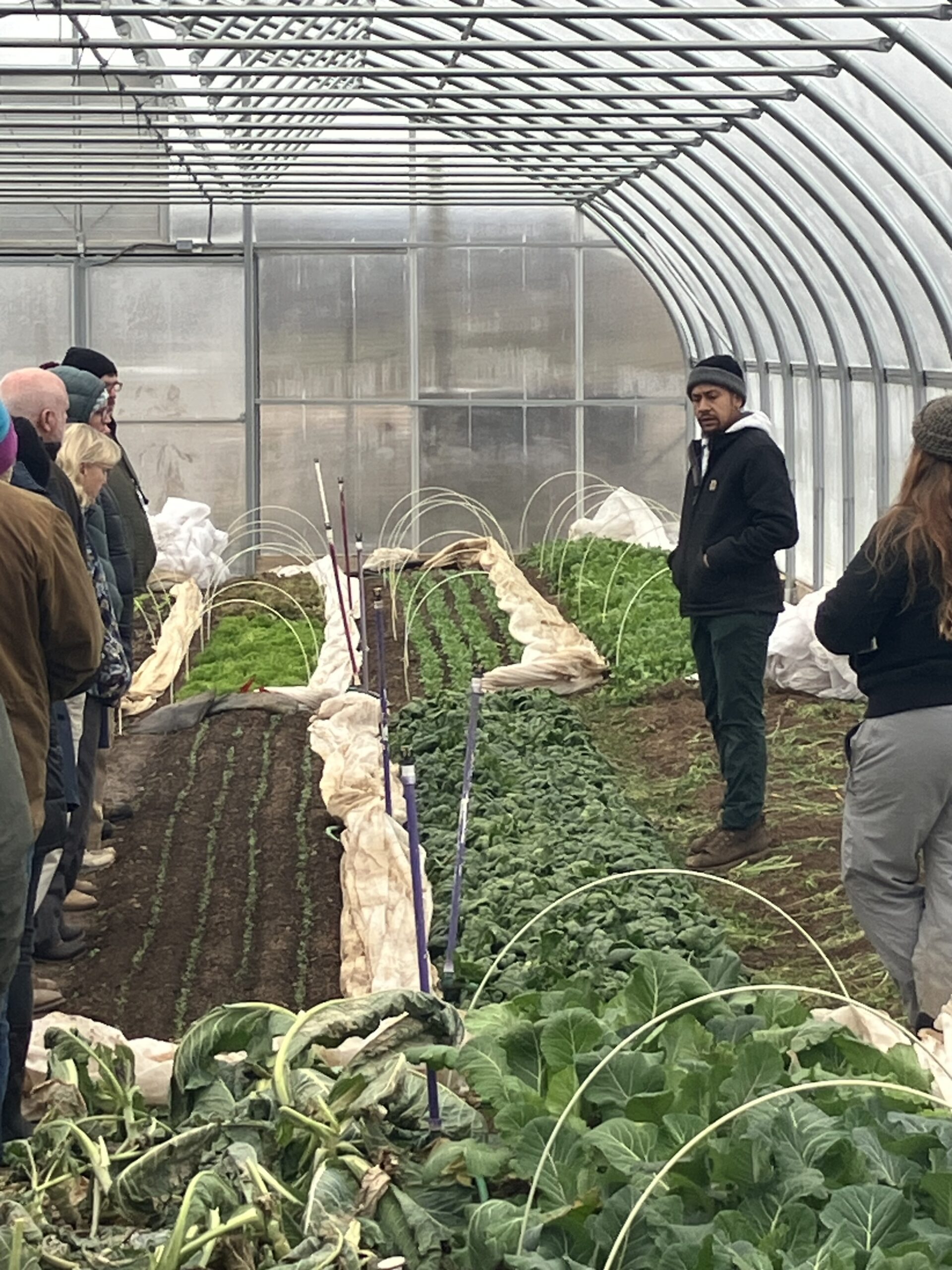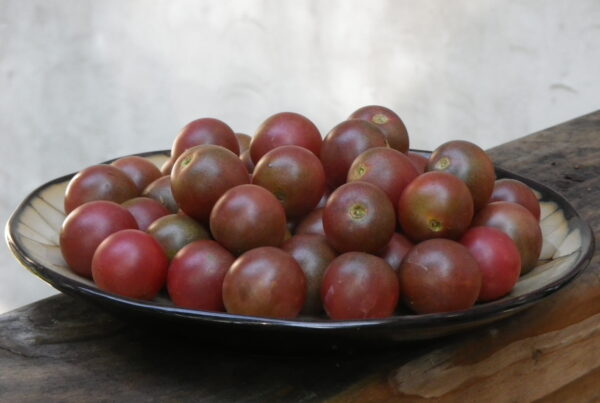By Mark Schonbeck, VABF Policy Liason
We Need and Deserve a Strong, Regenerative Farm Bill in 2024!
Push Congress to act NOW – sign on by September 5!
The 2018 Farm Bill is slated to expire on October 1. Congress has already extended this Farm Bill by an extra year (2023-24) but has been unable to advance a fair and equitable 2024 Farm Bill. This situation puts at risk many vital programs and resources for farmers, including the Inflation Reduction Act (IRA) funding for climate-friendly conservation practices as well as a host of new and expanded local and regional food systems programs from the pandemic years.
We need a Farm Bill that makes IRA climate-smart conservation funding permanent, improves access to innovative local/regional food system programs, supports the growth of urban agriculture, and reforms the farm safety net (crop insurance, credit, etc) to better serve small, diversified, and minority farmers. And we need this new farm bill NOW – not next year or later!
Therefore, a group of organizations including the National Sustainable Agriculture Coalition (NSAC) has developed a sign-on letter to Tell Congress to Pass a Just and Fair Farm Bill ASAP! So far, over 200 organizations including VABF have signed onto this letter. In addition to NGOs, individual farms and food businesses are encouraged to sign.
Every successful farm bill has been built on the foundation of bipartisanship and the active engagement of many stakeholders, and the next farm bill will be no different. We believe that the 118th Congress could complete a new farm bill this year – but expediency must not come at the expense of policies that address hunger, public health, farmers, workers, and the climate crisis.
Can you add your organization, farm, or food enterprise to the list before the September 5th deadline? Click Here To Add Your Org’s Name to the List of Signatories. In addition, please invite other farmers and organizations in your network to sign on. The more the better!
Organic Farmers Speak Out on Immigration
From Elizabeth Henderson of Peacework Farm
As farmers who are dedicated to the health of the soil and of the people who eat our crops, we are also concerned about justice and equity. For our farms to thrive, we need many hands … many of us depend on immigrant labor. It is painful to hear immigrants attacked as criminals when we know the hard-working people without whose labor there would not be food on many tables in this country, and the new entry farmers who overcome daunting obstacles to establish outstanding farms and farm networks.
The immigrants who come here make enormous sacrifices, separating from their families for long stretches … to work for OUR food system at jobs that many citizens are unwilling to do.
Immigrants have contributed significantly to the advancement of organic, and regenerative agriculture that is grounded in ancestral indigenous ecological knowledge, and enhanced by the hard-working descendants of the original people of these lands from Canada throughout Central America who now have to migrate across their own ancestral lands to make ends meet and to support their families.
We demand an end to targeting and blaming the millions of people who come to our country seeking to contribute their work and provide a better life for their families. A fully sustainable system of food and farming is not possible without justice for all the people of the earth. To read this letter in full and to sign it, visit https://forms.gle/1fHrnkPwUGfMy8nt8.
Investing in Rural America – Rural Partners Roundtable
Thursday, August 29th, 2 – 3:30pm
The Inn at Virginia Tech, 901 Prices Fork Road, Blacksburg, VA.
The Rural Urban Bridge Initiative is working with USDA to sponsor this Roundtable, at which several speakers representing innovative groups and businesses will describe their strategies for solving problems from the bottom up. In addition representatives from USDA and other agencies will discuss how to leverage federal funding to make empowering and sustainable change for Southwest Virginia’s rural communities. Click here to register.
Seeking Your Input on Policy Priorities, the Farm Bill, and USDA Programs
A note from the writer of this e-newsletter policy column
Hello all! For the past 15 years, I have served as your Policy Liaison, providing policy news, funding opportunities, and action alerts through this monthly column and by representing VABF at semiannual meetings of the National Sustainable Agriculture Coalition (NSAC).
At this time, I feel the need to update myself on VABF farmers and other members’ priorities for federal agricultural policy and USDA programming. I would like to talk one-on-one with you to learn more about your needs, concerns, and priorities related to federal ag policies, Farm Bill programs, and NSAC priorities. Please contact me if you would like to set up a phone date (or in person visit if you are within 50 miles of Floyd ) – Mark Schonbeck, 540-835-7664, schonbeckmark@gmail.com.
I am also planning a policy session at our January 2025 Conference, at which NSAC staff will discuss how you as VABF members can take part in a nationwide effort to transform our food and agriculture system into one that helps organic and regenerative farmers thrive economically, builds racial equity and food security, restores the land, and addresses the climate crisis.
EQIP Customer Survey
Deadline September 10
From the USDA Natural Resources Conservation Service (NRCS):
Have you participated in our Environmental Quality Incentive Program (EQIP) in the last three years? If so, we want to hear from you!
To continually improve our flagship conservation program, we’re asking our EQIP customers to participate in a survey. (Note that if you’ve already completed the survey, please do not submit a second response.) It’s open right now through September 10, 2024. Click here to participate in the EQIP Customer Survey.
Current Funding Opportunities for Organic and Sustainable Agriculture
Some of the programs announced in July are still open – scroll down.
Organic Certification Cost Share Program (OCCSP)
USDA accepting applications through Oct 31, 2024.
If you are a USDA certified organic farmer or handler and you have incurred or will incur expenses related to organic certification during Fiscal Year 2024 (October 1, 2023 through September 30, 2024), you are eligible for a reimbursement of 75% of your certification costs up to $750 for each certification category. These categories include crops, livestock, wild crops, and processing/handling. You can receive reimbursement for application fees, inspection costs including inspector travel expenses, costs related to equivalency agreements and sales assessments, and postage. Contact the Farm Services Agency (FSA) through your local USDA Service Center or the Virginia Department of Agriculture and Consumer Services (VDACS) to access this benefit.
Partnership for Climate Smart Commodities is Seeking Participants
30 projects reaching out to Virginia farmers
In 2023, USDA awarded a total of $3.1 billion to support 141 projects in the Partnership for Climate Smart Commodities (PCSC), of which 30 projects (total funding $937 million) include partners and producers in Virginia. Projects are recruiting farmers at this time, offering technical and financial assistance to implement climate-friendly, soil health-enhancing practices. PCSC projects also aim to develop practical, reliable, and affordable methods to monitor and quantify net greenhouse gas (GHG) mitigation and carbon sequestration, and to open new market opportunities for farmers to market their products as climate smart. Check out this summary of PCSC in Virginia and this complete listing and description of the 30 PCSC projects recruiting Virginia farmers.
Apply Now for Fiscal Year 2025 NRCS Conservation Contracts
Deadline October 11, 2024
The Virginia Natural Resources Conservation Service (NRCS) State office in Richmond, VA has announced Oct. 11, 2024, close of business, as the batching date by which all Fiscal Year (FY) 2025 applications for all NRCS financial assistance programs must be received by the local NRCS Service Center. The programs are:
- Environmental Quality Incentives Program (EQIP)
- Conservation Stewardship Program (CSP)
- Regional Conservation Partnership Program (RCPP).
- Agricultural Conservation Easement Program (ACEP)
Additionally, to be considered for funding in FY25, the applicants above, must be 100% eligible by close of business on Dec. 13, 2024. Inquire at your local NRCS Service Center to see if you need to complete any additional forms to be fully eligible.
EQIP provides 75% cost-share for a wide range of practices applied to working lands (cropland, orchard, pasture, etc) to address specific resource and environmental concerns. These include climate-smart and soil health-enhancing practices such as Cover Crop, Conservation Crop Rotation, No-till, Reduced Tillage, Nutrient Management, Soil Carbon Amendment, Grazing Management, and agroforestry practices such as Alley Cropping, Forest Farming, Windbreak, Silvopasture, and Riparian Forest Buffer. All of these can enhance the soil, climate, water quality, and economic outcomes for your organic or regenerative farming operation, and all have enhanced support at this time through the Inflation Reduction Act (IRA) conservation funding.
CSP pays farmers who already maintain a substantial level of resource conservation to implement more advanced levels of soil, water, ecological, and climate stewardship on working lands through whole-farm planning and “enhancements” on conservation practices such as cover crops, rotations, and advanced grazing management.
RCPP establishes public-private partnerships with organizations to fund collaborative efforts by multiple farmers to address specific resource concerns within a region or watershed. Click here for more on RCPP or inquire at your local NRCS service center about RCPP opportunities in your locale.
ACEP offers easements to protect cropland and grassland from development, and to protect and restore wetlands that have been degraded by agricultural activities.
James River Buffer Program
Designs and installs riparian forest buffer at no cost to you
If your farm is located within the James River watershed and you would like to plant a forested buffer to protect water quality, provide wildlife habitat, and improve farm biodiversity, check out the James River Buffer Program. The James River Association, the Virginia Department of Forestry, and the Chesapeake Bay Foundation are working with farmers and landowners across the middle and upper James River watershed to restore or create forest buffers that improve the quality of local waterways. The program works with you to select tree species, plants the buffer, and provides maintenance for the first three years at no cost to you. Plantings can include income generating species such as sugar maple for syrup production. Perennial plantings will play a vital role in addressing the climate crisis by enhancing resilience, sequestering carbon, and intercepting nutrients.
Other News from National Sustainable Agriculture Coalition (NSAC)
2025 Agriculture Appropriations Bills
In late July, NSAC published an in-depth analysis of the House and Senate Agriculture Appropriations Bills for 2025. The Senate Ag Appropriations Subcommittee unanimously passed a bipartisan bill that maintains level funding for key conservation, research, and local food systems programs, and increases funding for food assistance and conservation technical assistance. In contrast, the House bill would significantly cut certain programs and it also contains harmful policy riders that would block implementation of new USDA Packers and Stockyards Act reforms that would protect contract livestock farmers’ rights and also defunds USDA racial equity initiatives.
One silver lining: both bills include language supportive of organic research with emphasis on National Organic Standards Board (NOSB) research priorities, and the Senate bill further cites the climate smart aspect of the organic method and specifically mentions the Organic Transitions Program. However, budgetary constraints imposed by the Fiscal Responsibility Act of 2023 deterred the subcommittees from translating moral support into increased funding for organic research.






